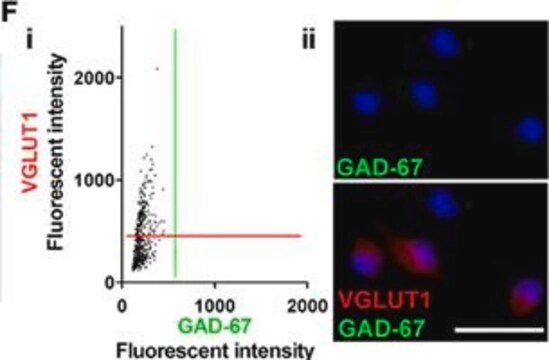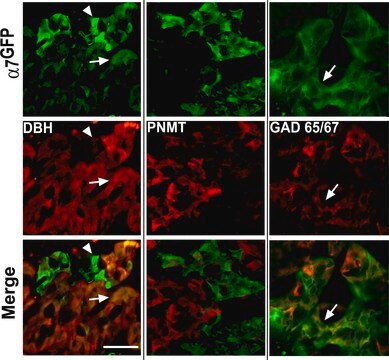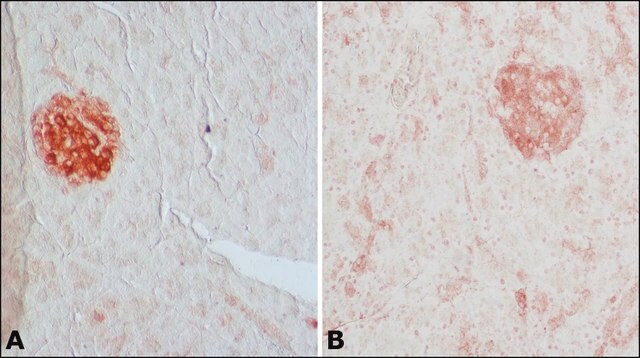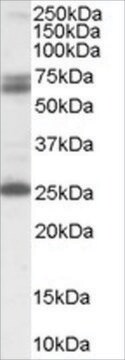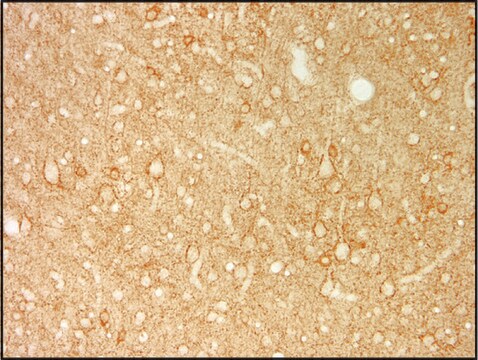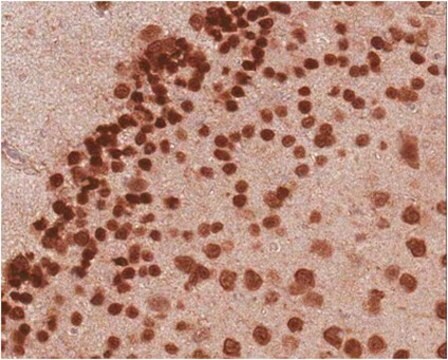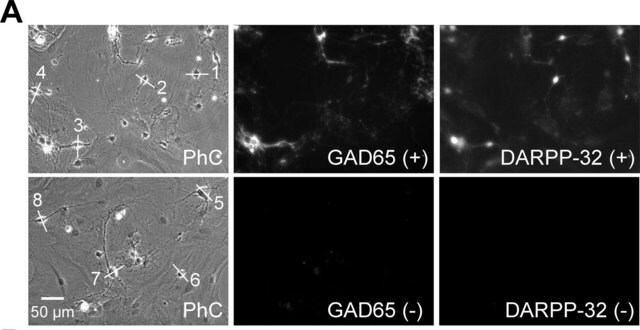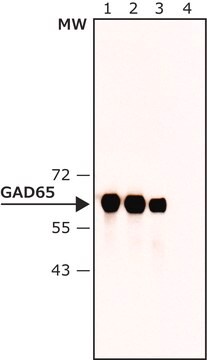ABN101
Anti-GAD65 Antibody
from rabbit, purified by affinity chromatography
Sinonimo/i:
Glutamate decarboxylase 2, 65 kDa glutamic acid decarboxylase, GAD-65, Glutamate decarboxylase 65 kDa isoform
About This Item
Prodotti consigliati
Origine biologica
rabbit
Livello qualitativo
Forma dell’anticorpo
affinity isolated antibody
Tipo di anticorpo
primary antibodies
Clone
polyclonal
Purificato mediante
affinity chromatography
Reattività contro le specie
mouse, human, rat, pig
Reattività contro le specie (prevista in base all’omologia)
canine (based on 100% sequence homology), porcine (based on 100% sequence homology)
tecniche
western blot: suitable
N° accesso NCBI
N° accesso UniProt
Condizioni di spedizione
wet ice
modifica post-traduzionali bersaglio
unmodified
Informazioni sul gene
human ... GAD2(2572)
Descrizione generale
Immunogeno
Applicazioni
Neuroscience
Developmental Neuroscience
Qualità
Western Blot Analysis: 1 µg/mL of this antibody detected GAD65 on 10 µg of rat brain membrane tissue lysate.
Descrizione del bersaglio
Stato fisico
Stoccaggio e stabilità
Risultati analitici
Rat brain membrane tissue lysate
Altre note
Esclusione di responsabilità
Not finding the right product?
Try our Motore di ricerca dei prodotti.
Raccomandato
Codice della classe di stoccaggio
12 - Non Combustible Liquids
Classe di pericolosità dell'acqua (WGK)
WGK 1
Punto d’infiammabilità (°F)
Not applicable
Punto d’infiammabilità (°C)
Not applicable
Certificati d'analisi (COA)
Cerca il Certificati d'analisi (COA) digitando il numero di lotto/batch corrispondente. I numeri di lotto o di batch sono stampati sull'etichetta dei prodotti dopo la parola ‘Lotto’ o ‘Batch’.
Possiedi già questo prodotto?
I documenti relativi ai prodotti acquistati recentemente sono disponibili nell’Archivio dei documenti.
Il team dei nostri ricercatori vanta grande esperienza in tutte le aree della ricerca quali Life Science, scienza dei materiali, sintesi chimica, cromatografia, discipline analitiche, ecc..
Contatta l'Assistenza Tecnica.